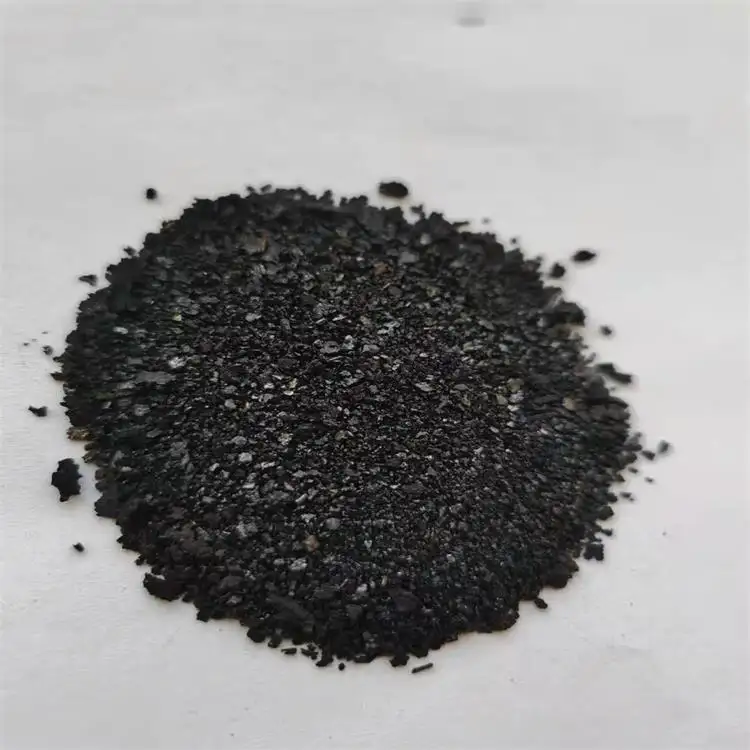Vibrant Indigo Dye Apparel for Unique and Stylish Wardrobe Choices
The Allure of Indigo Dye A Timeless Textile Tradition
Indigo dyeing is an ancient craft that has captivated artisans and fashion enthusiasts alike for centuries. With its deep blue hues, indigo dye has adorned garments across cultures and continents, making it a symbol of beauty, tradition, and craftsmanship. As sustainable fashion gains momentum, the revival of indigo-dyed clothing is more relevant than ever. This article explores the history, process, and modern relevance of indigo dye in today’s fashion landscape.
A Rich History
The use of indigo dye can be traced back over 6,000 years, with evidence found in ancient Egypt. It was the primary dye used for textiles in many regions, including Africa, Asia, and the Americas. The dye is extracted from the leaves of the Indigofera plant, and its production requires a labor-intensive process that can involve fermentation and oxidation.
In Japan, indigo dyeing is known as aizome, and this traditional craft has been perfected over generations. Japanese artisans employ unique techniques, often using multiple dips in the dye to achieve varying shades of blue. The distinctive patterns produced through techniques such as shibori (binding and folding of fabric) showcase the versatility of indigo dye, turning garments into wearable pieces of art.
The Indigo Dyeing Process
The indigo dyeing process is labor-intensive but rewarding, contributing to the uniqueness of each piece. First, leaves from the indigo plant are harvested and fermented to create a dye solution. This solution undergoes oxidation to develop its deep blue color. The fabric, often cotton or silk, is then immersed in this dye bath. As the fabric is exposed to air after emerging from the dye, the color changes from green to blue, showcasing the enchanting transformation that occurs during the dyeing process.
One of the critical aspects of indigo dyeing is its ability to produce varying shades of blue through different dyeing techniques. Utilizing multiple dips in the dye bath can result in rich, dark hues, while fewer dips yield lighter shades. This characteristic not only adds depth to the final product but also allows for endless creative possibilities in pattern and design.
indigo dye clothes product

Modern Relevance and Sustainability
In recent years, there has been a renewed interest in indigo-dyed clothing, primarily driven by the sustainable fashion movement. Consumers are increasingly seeking eco-friendly products, and indigo dyeing fits the bill perfectly. Generally derived from natural sources, indigo dyeing minimizes the use of harmful chemicals, making it a more sustainable option compared to synthetic dyes.
Moreover, the rise of ethical fashion brands has spotlighted indigo dye as a commitment to sustainability. Many contemporary designers are partnering with traditional artisans in regions where indigo dyeing has been practiced for generations. These collaborations not only support local economies but also ensure that age-old techniques are preserved for future generations.
The aesthetic appeal of indigo-dyed garments cannot be overlooked. The rich, deep blues evoke feelings of calm, sophistication, and timelessness. Whether it’s a pair of denim jeans, a flowing dress, or intricate accessories, clothing infused with the indigo dye technique transcends trends and speaks to a sense of individuality.
Conclusion
Indigo dyeing is more than a mere fashion statement; it is a celebration of history, culture, and craftsmanship. As society increasingly values sustainable practices, the allure of indigo-dyed clothing continues to flourish. Each piece tells a story—of nature, of tradition, and of the artistry that has been passed down through generations.
For those seeking fashion that honors both beauty and sustainability, indigo dye presents an ideal choice. With its vibrant hues and eco-friendly appeal, indigo-dyed clothing not only enriches wardrobes but also connects wearers to a rich narrative steeped in history. As we embrace these timeless textiles, we contribute to a larger movement that respects our planet and appreciates the intricacies of craftsmanship. Indigo dyeing is, indeed, a beautiful journey worth exploring.
-
The Timeless Art of Denim Indigo Dye
NewsJul.01,2025
-
The Rise of Sulfur Dyed Denim
NewsJul.01,2025
-
The Rich Revival of the Best Indigo Dye
NewsJul.01,2025
-
The Enduring Strength of Sulphur Black
NewsJul.01,2025
-
The Ancient Art of Chinese Indigo Dye
NewsJul.01,2025
-
Industry Power of Indigo
NewsJul.01,2025
-
Black Sulfur is Leading the Next Wave
NewsJul.01,2025

Sulphur Black
1.Name: sulphur black; Sulfur Black; Sulphur Black 1;
2.Structure formula:
3.Molecule formula: C6H4N2O5
4.CAS No.: 1326-82-5
5.HS code: 32041911
6.Product specification:Appearance:black phosphorus flakes; black liquid

Bromo Indigo; Vat Bromo-Indigo; C.I.Vat Blue 5
1.Name: Bromo indigo; Vat bromo-indigo; C.I.Vat blue 5;
2.Structure formula:
3.Molecule formula: C16H6Br4N2O2
4.CAS No.: 2475-31-2
5.HS code: 3204151000 6.Major usage and instruction: Be mainly used to dye cotton fabrics.

Indigo Blue Vat Blue
1.Name: indigo blue,vat blue 1,
2.Structure formula:
3.Molecule formula: C16H10N2O2
4.. CAS No.: 482-89-3
5.Molecule weight: 262.62
6.HS code: 3204151000
7.Major usage and instruction: Be mainly used to dye cotton fabrics.

